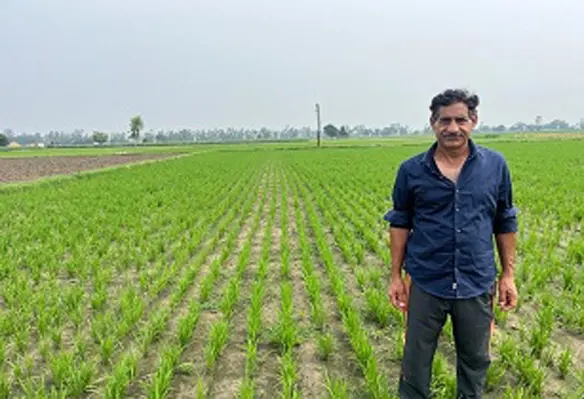Bayer, with it plans to support two million early adopter-smallholder farmers and their families in India by 2030 and expand to the Philippines starting 2024, has introduced the direct-seeded rice (DSR) system at the sixth International Rice Congress in Manila, Philippines
The shift to direct-seeded rice from transplanted puddled rice cultivation can help reduce farmers’ water usage by up to 40%, greenhouse gas emissions (GHG) by up to 45% and make farmers more independence by reducing their reliance on scarce and costly manual labor by up to 50%.
Bayer’s recently announced approach to regenerative agriculture will enable farmers to produce more while restoring more, and the introduction of the DSR system is fully in line with this approach. The system with its transformational potential, is expected to help India switch 75% of its total rice fields to this cultivation method by 2040. Moreover, by 2030, Bayer plans to bring the DSR system to one million hectares in India, supporting over two million early-adopter smallholder rice farmers through its DirectAcres programme, which it is planning to introduce in other rice growing countries in the Asia Pacific, starting with the Philippines in 2024.
Using advanced R&D capabilities, Bayer is designing climate-resilient rice hybrids with higher yields that can be sown directly in the soil and bred specifically for the different farm environments. By removing the standing water – used partly to prevent weeds – machinery can perform much of the otherwise time consuming and arduous, manual farming practices. Bayer is also developing new crop protection solutions including a new rice herbicide to ensure a successful and durable weed management programme for the direct-seeded rice system. Furthermore, the company’s digital platform ‘FarmRise’ gives farmers access to advisory services, necessary machinery, other inputs and services, while also connecting smallholders to the company’s Carbon Programme. The app therefore, provides rice farmers with data-driven insights to empower them to make better agronomic decisions, while also enabling them to earn additional revenues as they reduce emissions.
Although rice is the world’s third largest crop, sustaining more than half the global population, it is also an important contributor to climate change. It is estimated that rice production contributes to 1.5% of total global GHG emissions, 12% of methane emissions and consumes up to 43% of the world’s total irrigation water.
DSR has the potential to change this by reducing the water use and the GHG emissions created by methane emitting bacteria that thrive in the standing water. The reduction of on-farm manual labour – through mechanisation – addresses the issue of continous labour shortage in the Indian countryside due to rapid urbanisation.
Bringing direct-seeded rice to one million hectares by 2030 also contributes to the company’s sustainability goals of reducing customers’ on-field GHGs per kilogram of crop produced by 30% and empowering 100 million smallholder farmers to sustainably increase their productivity, improve the quality of their produce and enhance their livelihoods.
Moreover, to ensure the smooth transformation of rice production, Bayer has partnered with a number of organisations including the International Rice Research Institute (IRRI) and also participated in the Direct Seeded Rice Consortium (DSRC) for many years.
“The need to come together to shape more economically viable and sustainable rice cultivation systems has never been so pressing,” explained Mike Graham, head of Breeding at Bayer’s Crop Science Division. “Our direct-seeded rice system will help smallholder rice farmers adapt to, and mitigate, climate change while running profitable businesses, improving their own and community’s social well-being.”
For more information, visit: https://www.bayer.com/en/




